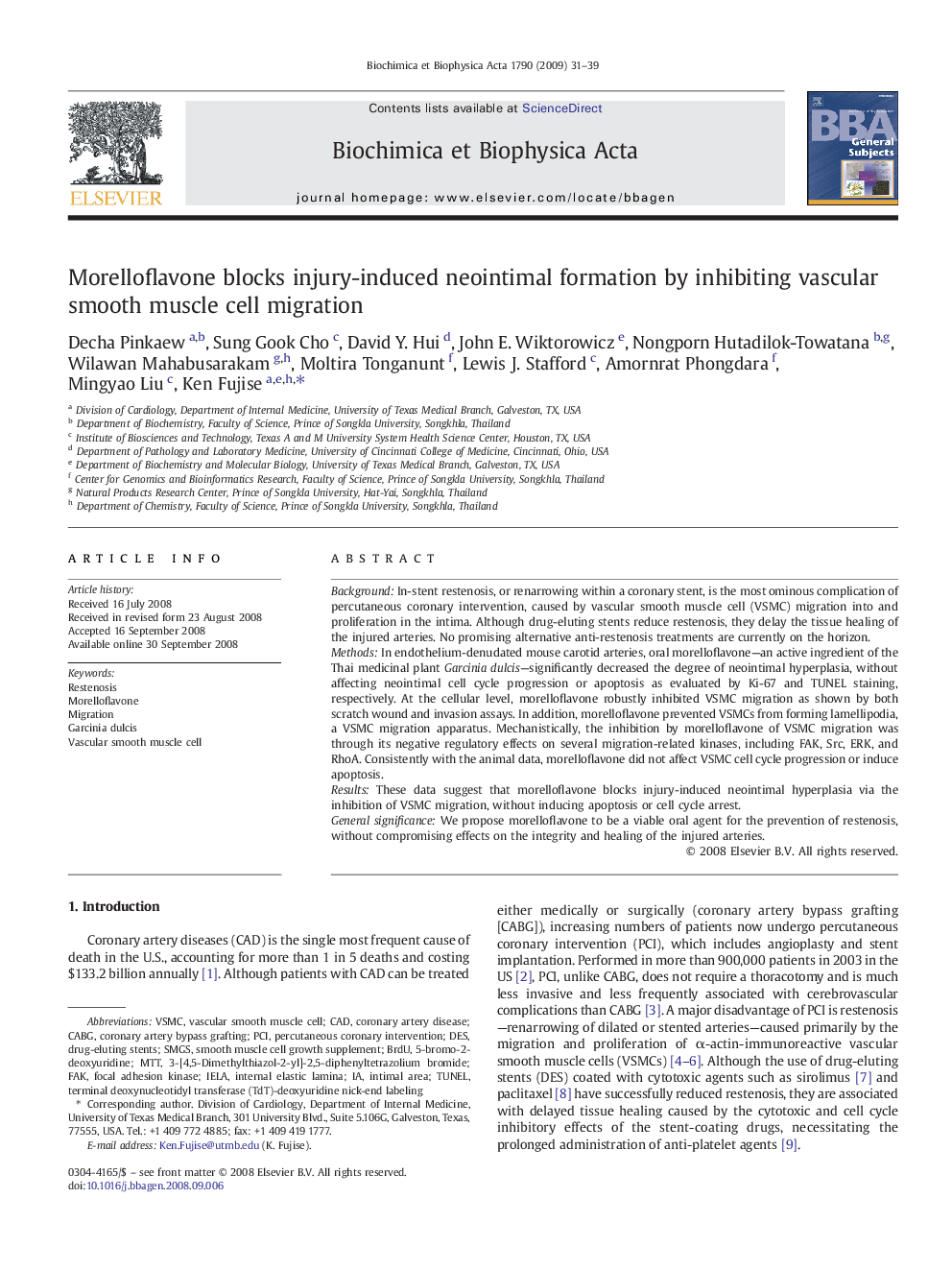| Article ID | Journal | Published Year | Pages | File Type |
|---|---|---|---|---|
| 1948293 | Biochimica et Biophysica Acta (BBA) - General Subjects | 2009 | 9 Pages |
BackgroundIn-stent restenosis, or renarrowing within a coronary stent, is the most ominous complication of percutaneous coronary intervention, caused by vascular smooth muscle cell (VSMC) migration into and proliferation in the intima. Although drug-eluting stents reduce restenosis, they delay the tissue healing of the injured arteries. No promising alternative anti-restenosis treatments are currently on the horizon.MethodsIn endothelium-denudated mouse carotid arteries, oral morelloflavone—an active ingredient of the Thai medicinal plant Garcinia dulcis—significantly decreased the degree of neointimal hyperplasia, without affecting neointimal cell cycle progression or apoptosis as evaluated by Ki-67 and TUNEL staining, respectively. At the cellular level, morelloflavone robustly inhibited VSMC migration as shown by both scratch wound and invasion assays. In addition, morelloflavone prevented VSMCs from forming lamellipodia, a VSMC migration apparatus. Mechanistically, the inhibition by morelloflavone of VSMC migration was through its negative regulatory effects on several migration-related kinases, including FAK, Src, ERK, and RhoA. Consistently with the animal data, morelloflavone did not affect VSMC cell cycle progression or induce apoptosis.ResultsThese data suggest that morelloflavone blocks injury-induced neointimal hyperplasia via the inhibition of VSMC migration, without inducing apoptosis or cell cycle arrest.General significanceWe propose morelloflavone to be a viable oral agent for the prevention of restenosis, without compromising effects on the integrity and healing of the injured arteries.
